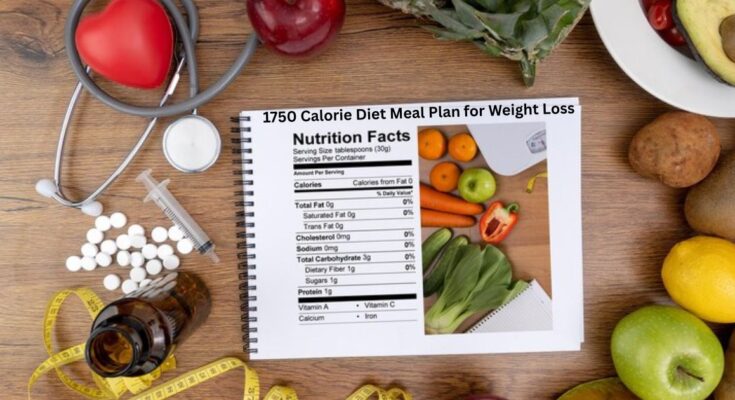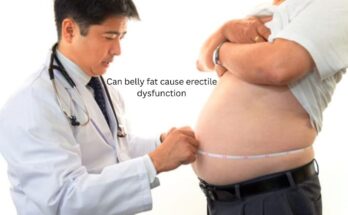Introduction
A 1750-calorie diet weight loss meal plan strikes a balance between creating a calorie deficit (essential for fat loss) and providing enough energy to fuel daily activities. For many people, cutting calories to 1,750 per day results in losing 1–1.5 pounds weekly—a safe, manageable rate. Benefits include:
- Flexibility: No food groups are eliminated, making it easier to stick to long-term.
- Satiety: High-protein and fiber-rich meals curb cravings.
- Adaptability: Works for vegetarians, omnivores, and gluten-free diets.
Macronutrient Breakdown for a 1750 Calorie Diet Weight Loss Meal Plan
To optimize fat loss and preserve muscle mass, aim for this macronutrient split in your 1750 calorie diet weight loss meal plan:
- Protein: 30% (131g/day) – Supports metabolism and muscle retention.
- Carbs: 400% (175g/day) – Fuels energy for workouts and daily tasks.
- Fats: 30% (58g/day) – Promotes hormone health and satiety.
Adjust ratios based on your preferences, but prioritize protein to stay full longer.
7-Day 1750 Calorie Diet Weight Loss Meal Plan
Day 1
- Breakfast (350 cal): Spinach omelet (3 eggs, 1 cup spinach, ¼ avocado) + 1 slice whole-grain toast.
- Snack (150 cal): :1 medium apple + 1 tbsp almond butter.
- Lunch (400 cal): Grilled chicken salad (4oz chicken, mixed greens, cherry tomatoes, cucumber, 2 tbsp vinaigrette).
- Snack (100 cal): :1 small Greek yogurt (unsweetened).
- Dinner (500 cal): Baked salmon (5oz), ½ cup quinoa, 1 cup roasted broccoli.
Day 2
- Breakfast (300 cal): Overnight oats (½ cup oats, ½ cup almond milk, 1 tbsp chia seeds, ½ cup berries).
- Snack (150 cal): :1 hard-boiled egg + 1 oz almonds.
- Lunch (450 cal): Turkey wrap (4oz turkey, whole-wheat tortilla, lettuce, tomato, 1 tbsp hummus).
- Snack (100 cal): :1 cup carrot sticks with 2 tbsp guacamole.
- Dinner (450 cal): Stir-fry (4oz shrimp, 1 cup bell peppers, ½ cup brown rice, 1 tsp sesame oil).
(Continue Days 3–7 with similar balanced meals, adjusting proteins, veggies, and whole grains.)
Tips for Success on a 1750 Calorie Diet Weight Loss Meal Plan

- Track Everything
Use apps like MyFitnessPal to log meals and stay within a 1750-calorie diet weight loss meal plan. Even small snacks add up!
- Prioritize Protein
Include 20–30g of protein per meal (e.g., chicken, tofu, Greek yogurt) to reduce hunger and maintain muscle.
- Plan Ahead
Prep meals weekly to avoid impulsive, high-calorie choices. Batch-cook staples like grilled chicken, roasted veggies, and quinoa.
- Stay Hydrated
Drink 8–10 cups of water daily. Thirst is often mistaken for hunger, leading to unnecessary snacking.
- Incorporate Fiber
Aim for 25–30g of fiber daily from veggies, fruits, and whole grains to improve digestion and fullness.
Sample Quick Recipes for a 1750 Calorie Diet Weight Loss Meal Plan
High-Protein Breakfast Oatmeal (300 cal)
- ½ cup rolled oats
- 1 scoop vanilla protein powder
- 1 cup unsweetened almond milk
- ½ cup blueberries
Mix oats and milk, microwave for 2 minutes, stir in protein powder, and top with berries.
Turkey Lettuce Wraps (400 cal)
- 4oz lean ground turkey (cooked with garlic and chili flakes)
- 3 large lettuce leaves
- ¼ cup diced tomatoes + 2 tbsp salsa
Scoop turkey into lettuce leaves, add toppings, and roll.
Common Mistakes to Avoid
- Skipping Meals
Eating too little can slow your metabolism. Stick to your 1750-calorie diet weight loss meal plan to avoid energy crashes.
- Overestimating Portions
Weigh proteins, carbs, and fats with a kitchen scale to prevent accidental overeating.
- Neglecting Sleep
Poor sleep increases hunger hormones. Aim for 7–8 hours nightly to support your 1750-calorie diet weight loss meal plan.
- Ignoring Exercise
Combine your meal plan with 150+ minutes of weekly cardio and strength training for faster results.
Adapting the 1750 Calorie Diet Weight Loss Meal Plan
- Vegetarian? Swap meats for lentils, chickpeas, or tempeh.
- Gluten-free? Use quinoa, rice, or gluten-free oats.
- Dining ooutOpt for grilled proteins, steamed veggies, and avoid creamy sauces.
Final Thoughts
A 1750-calorie diet weight-loss meal plan is a realistic, science-backed strategy to lose weight without extreme restrictions. By focusing on whole foods, balanced macros, and consistency, you can achieve sustainable results. Pair this meal plan with regular exercise and mindful eating habits to maximize your progress. Always consult a healthcare provider before starting any new diet, especially if you have medical conditions.



